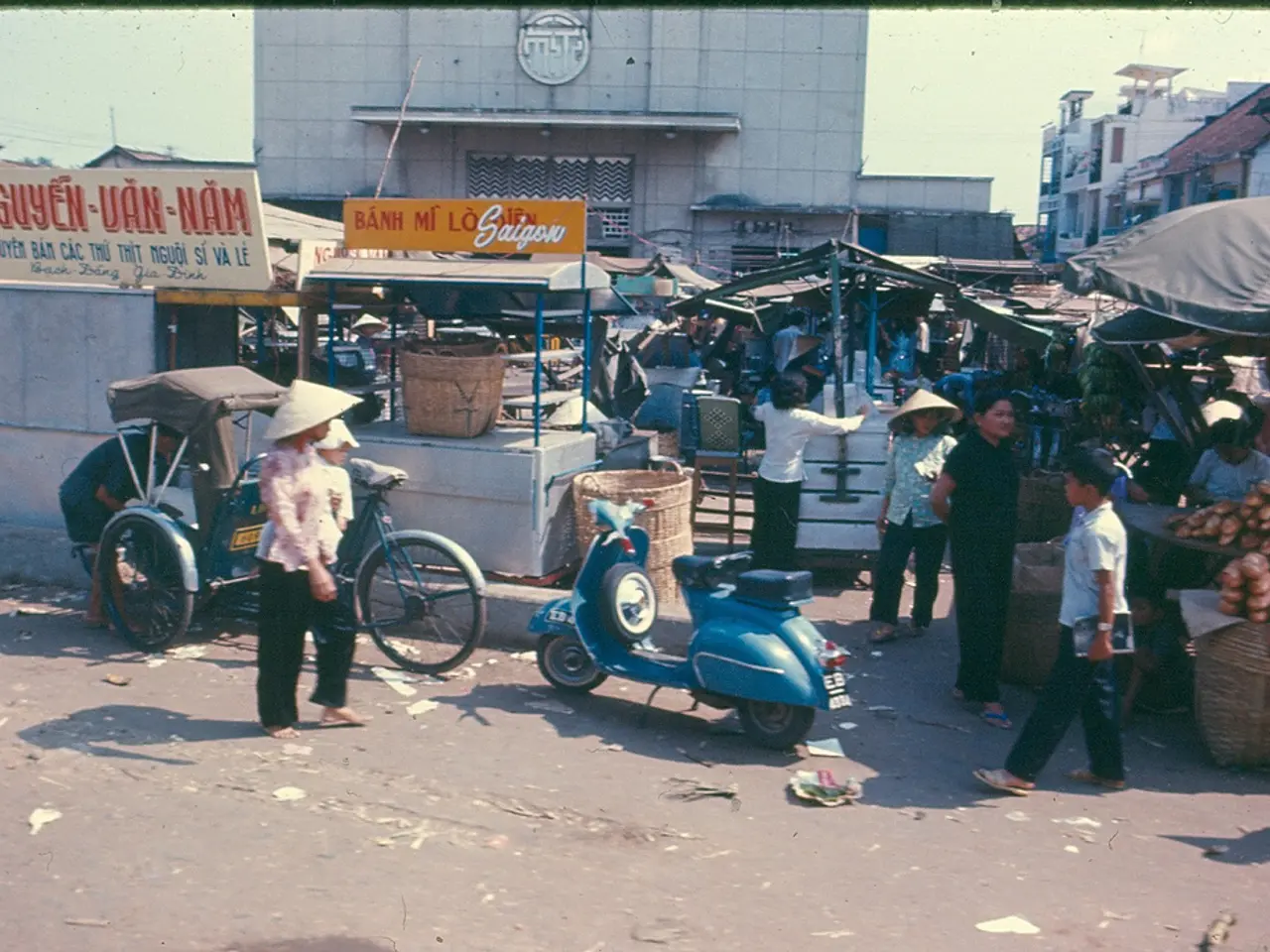EU Cracks Down on Food Spoilage and Rapid Apparel Consumption - European initiative against food spoilage and quick clothing trends
The European Union (EU) has announced a series of new measures aimed at addressing the issues of food and textile waste, as well as conserving resources used in their production. The measures, which apply to all 27 EU member states, are focused on reducing water consumption in textile production and setting targets for food waste reduction.
The EU parliament hopes that these measures can counteract the impacts of cheap textile imports, particularly from China, and help to increase the recycling rate of textiles, which currently stands at less than one percent worldwide. The new textile rules cover a wide range of products, including clothing, carpets, and mattresses.
In terms of food waste, the EU has set a target for its countries to reduce food waste in restaurants, retail, and households by 30% by 2030. The target for food waste reduction in production and processing is set at 10%. The measures are intended to conserve water, fertilizers, and energy used in food production, as well as reduce the amount of food and textile waste.
The EU generates 130 kilograms of food waste and 15 kilograms of textile waste per person annually. The new measures in the EU do not explicitly state a reduction target for textile waste, but they are intended to address the issue of textile waste nonetheless.
Producing a single cotton t-shirt consumes 2700 liters of water, making water conservation in textile production a key component of the new measures. The new measures are also focused on reducing the amount of food and textile waste, which is a significant environmental concern.
However, the hospitality industry has expressed criticism towards the new law, citing concerns about the practicality and cost of implementing the measures. Despite this, the EU remains committed to reducing food and textile waste and conserving resources used in their production.
The location of the EU's administrative center is in Brussels, Belgium, while the EU parliament is located in Strasbourg, France. The new measures are a significant step towards a more sustainable future for the EU and its citizens.
Read also:
- Peptide YY (PYY): Exploring its Role in Appetite Suppression, Intestinal Health, and Cognitive Links
- Toddler Health: Rotavirus Signs, Origins, and Potential Complications
- Digestive issues and heart discomfort: Root causes and associated health conditions
- House Infernos: Deadly Hazards Surpassing the Flames








